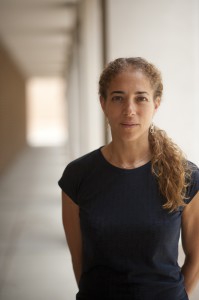Deborah A. Thomas is Professor of Anthropology and Africana Studies at the University of Pennsylvania. She is the author of Exceptional Violence: Embodied Citizenship in Transnational Jamaica and Modern Blackness: Nationalism, Globalization, and The Politics of Culture in Jamaica; and co-editor of the volume Globalization and Race: Transformations in the Cultural Production of Blackness. Her articles have appeared in a diverse range of journals including Cultural Anthropology, American Anthropologist, Radical History Review, small axe, Identities, and Feminist Review. Thomas was also editor of the journal Transforming Anthropology, and currently sits on the editorial boards of American Anthropologist and Social and Economic Studies. Thomas was also co-director and co-producer of the documentary film, BAD FRIDAY: RASTAFARI AFTER CORAL GARDENS. Prior to her life as an academic, she was a professional dancer with the New York-based Urban Bush Women.
Areas of Research
Nationalism, State Formation, Citizenship, Diaspora, Transnationalism, Globalization, Violence and Cultural Production
Publications
Thomas, Deborah. 2011. Exceptional Violence: Embodied Citizenship in Transnational Jamaica. Durham, NC: Duke University Press.
Thomas, Deborah. 2004. Modern Blackness: Nationalism, Globalization, and the Politics of Culture in Jamaica. Durham, NC: Duke University Press.
Thomas, Deborah. 2006. Globalization and Race: Transformations in the Cultural Production of Blackness, Eds. Kamari M. Clarke and Deborah A. Thomas. Durham, NC: Duke University Press.
Thomas, Deborah. 2013. “Globalization and Race: Structures of Inequality, New Sovereignties, and Citizenship in a Neoliberal Era.” Annual Review of Anthropology 42 (with Kamari Clarke).
Thomas, Deborah. 2013. “The Problem with Violence: Exceptionality and Sovereignty in the New World.” Journal of Transnational American Studies 5(1).
Thomas, Deborah. 2013. “Caribbean Studies, Archive Building, and the Problem of Violence.” small axe 17(2):27-42.
Thomas, Deborah. 2012. “Violence.” Oxford Bibliographies Online, http://oxfordbibliographiesonline.com/view/document/obo-9780199766567/obo-9780199766567-0027.xml?rskey=DRZfAn&result=5&q=violence#firstMatch
Thomas, Deborah. 2009. “The Violence of Diaspora: Governmentality, Class Cultures, and Circulations.” Radical History Review 103:83-104.
Thomas, Deborah and Karla Slocum. 2008. “Caribbean Studies, Anthropology, and U.S. Academic Realignments.” Souls 10(2):123-137.
Thomas, Deborah. 2008. “Walmart, ‘Katrina,’ and Other Ideological Tricks: Jamaican Hotel Workers in Michigan.” Special Issue of Feminist Review (Co-Edited with Tina M. Campt), “Gendering Diaspora,” 90:68-86.

